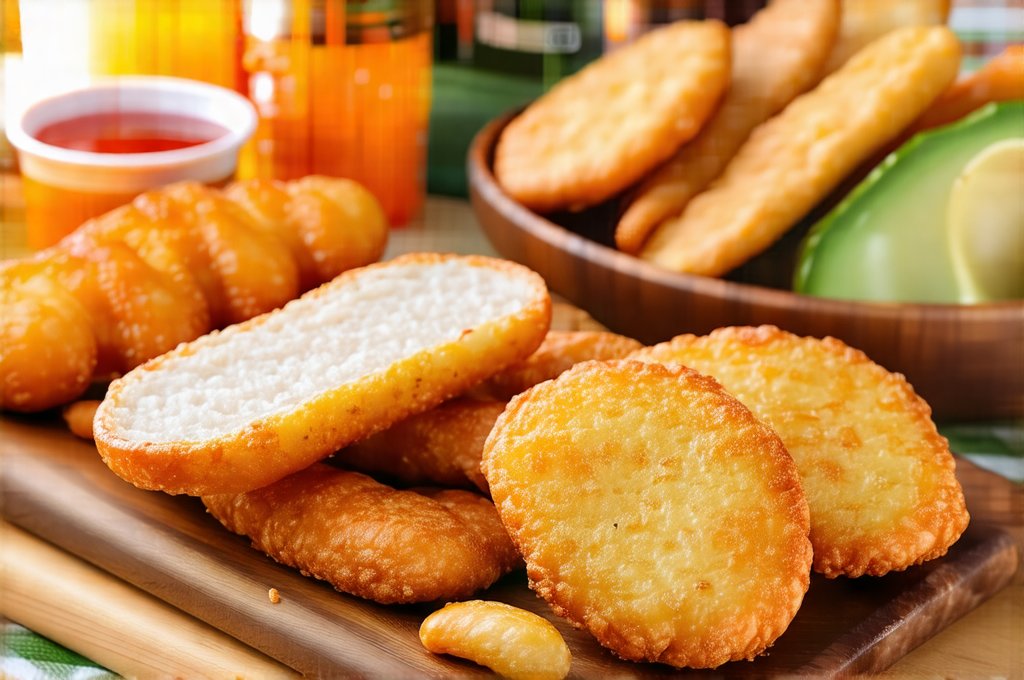The desire for an evening snack is incredibly common. After a long day, that little something sweet or savory can feel like a well-deserved reward – a comforting ritual before winding down. However, many of us have experienced the regret of late-night snacking: tossing and turning, waking up feeling sluggish, or even dealing with digestive discomfort that throws off our entire morning. The challenge isn’t necessarily avoiding evening snacks altogether, but rather choosing options that satisfy cravings without sabotaging sleep quality or next-day energy levels. It’s about finding the sweet spot between indulgence and mindful nourishment.
This often comes down to understanding how our bodies process food at different times of day. Our metabolism naturally slows as we approach bedtime, meaning digestion becomes less efficient. Certain foods are harder for the body to break down during this period, leading to disrupted sleep or feelings of heaviness in the morning. Furthermore, spikes in blood sugar levels from sugary snacks can interfere with restorative sleep cycles. The good news is that informed choices and a little planning can make all the difference. We can enjoy an evening treat without compromising our wellbeing – it’s about prioritizing both satisfaction and restful recovery. If you’re looking for options that won’t cause issues, consider the best bedtime snacks.
Understanding the Impact of Evening Snacking
The core issue isn’t snacking itself, but what we snack on and when. Our bodies are designed to process food during daylight hours when activity levels are higher. As evening approaches, the focus shifts towards restoration and repair, requiring a different kind of fuel – or, ideally, less fuel overall. Heavy, fatty foods require significant digestive effort, diverting energy from crucial restorative processes. This can lead to poor sleep quality as your body is still working hard to digest food instead of entering deeper stages of rest. Similarly, large portions, even of healthy foods, can disrupt sleep by causing bloating or discomfort.
Sugar, in particular, poses a challenge. While it provides a quick energy boost, the subsequent crash can lead to wakefulness during the night and a groggy morning. Glycemic index (GI) is an important concept here – foods with a high GI cause rapid spikes in blood sugar, while those with a low GI provide a more sustained release of energy. Choosing lower-GI options minimizes these fluctuations, promoting more stable sleep. It’s also crucial to consider individual sensitivities; what works for one person may not work for another. Paying attention to how different foods affect your body is essential for making informed snacking decisions. For those managing blood sugar levels, exploring snacks that don’t spike sugar can be particularly helpful.
Finally, the timing of your snack matters. Ideally, you should finish eating at least 2-3 hours before bedtime to allow your digestive system some time to settle down. Snacking immediately before sleep increases the likelihood of disruption. The goal isn’t deprivation, but thoughtful timing and portion control.
Smart Snacking Strategies: Building Blocks for Success
The foundation of a good evening snack is balance. It needs to satisfy cravings without overwhelming your system. This means focusing on combinations that offer sustained energy, minimize sugar spikes, and are easy to digest. Here’s how to approach it:
- Prioritize Protein & Fiber: These two macronutrients work synergistically to promote satiety and stabilize blood sugar levels. A small amount of protein helps curb cravings while fiber slows down digestion, preventing rapid spikes in glucose.
- Healthy Fats in Moderation: Healthy fats like those found in avocado or nuts provide sustained energy but should be consumed in smaller portions due to their higher caloric density.
- Limit Simple Carbohydrates & Added Sugars: These are the biggest culprits behind sleep disruption. Opt for complex carbohydrates with a lower GI, such as whole-grain crackers or sweet potato.
Consider building your snack around one of these core principles: A small handful of nuts and seeds paired with a piece of fruit; Greek yogurt with berries and a sprinkle of granola; or whole-wheat toast with avocado and a slice of turkey breast. The key is to create satisfying combinations that address both physical hunger and emotional cravings. If you struggle with digestive issues, small meal strategies might offer relief.
Portion Control & Mindful Eating
Even the healthiest snacks can become problematic if consumed in excessive quantities. Portion control is paramount, especially in the evening when our metabolism is slower. Pre-portioning snacks into individual servings can be incredibly helpful – it removes temptation and encourages mindful consumption. Avoid eating directly from large containers; instead, transfer a single serving to a bowl or plate.
Mindful eating plays a significant role too. This involves paying attention to your hunger cues and savoring each bite without distractions. Often, evening snacking isn’t driven by true physical hunger but by boredom, stress, or habit. Before reaching for a snack, pause and ask yourself if you’re genuinely hungry. If not, consider alternative ways to unwind – reading a book, taking a warm bath, or practicing meditation.
Hydration & Alternatives to Food
Sometimes, what we perceive as hunger is actually thirst in disguise. Many people unknowingly reach for snacks when they are simply dehydrated. Before grabbing an evening snack, drink a glass of water and wait 15-20 minutes to see if the craving subsides. Herbal teas (like chamomile or peppermint) can also be incredibly soothing and provide a sense of comfort without adding calories or sugar.
Beyond hydration, explore alternatives to food for satisfying emotional needs. If you’re snacking out of boredom, engage in a stimulating activity – listen to music, call a friend, or work on a hobby. If stress is the trigger, practice relaxation techniques like deep breathing exercises or yoga. Remember that self-care isn’t always about indulging in food; it’s about nurturing your physical and emotional wellbeing in healthy ways. Developing these alternative coping mechanisms can significantly reduce reliance on evening snacks. To further support overall wellness, consider nutritious meals that benefit both body and mind.




